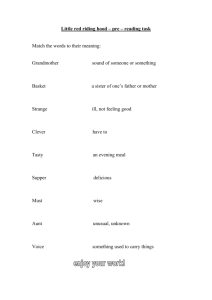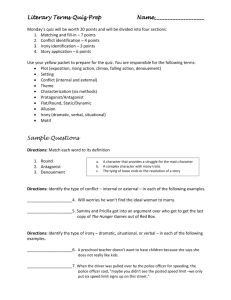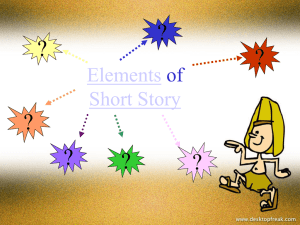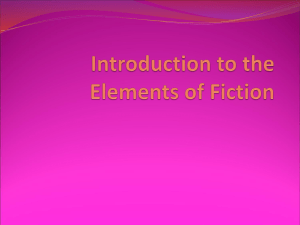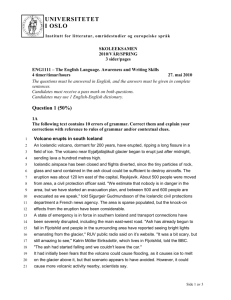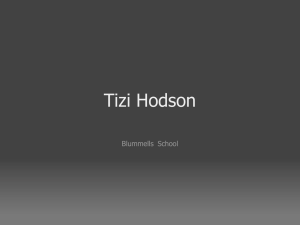teaching-and-learning-evening - Victoria Community Primary School
advertisement
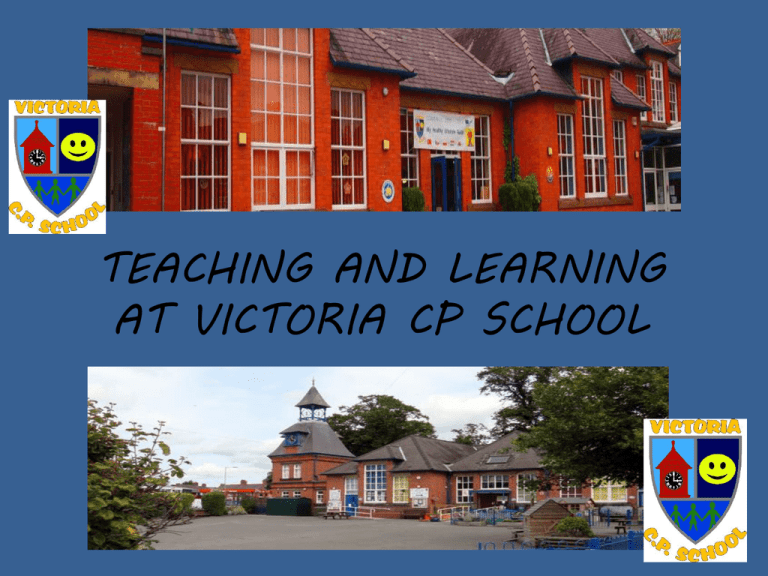
TEACHING AND LEARNING AT VICTORIA CP SCHOOL Running order • Mrs Eccles – Family Partnerships, Reading and Attendance • Mrs Walker – Foundation Phase Philosophy Mrs Jones and Early Intervention • Mrs Settle – Maths at Victoria and Homework Tips • Head Boys – What is a Good Learner? And Girls • Mr Hodges – The Digital World at Victoria • Ms Sheriff – Internet Safety • Questions and Answers School Aims School Improvement Plan 1. To improve the standard of numerical reasoning and problem solving 2. To improve the standard of reading 3. To improve attendance 4. To become a digitally competent school 5. To begin to implement the new curriculum in Wales Working with Families “Parental engagement in children’s learning makes a difference – it is the most powerful school improvement lever we have.” Research shows that at age seven, the degree to which families engage with their child’s learning has six times more influence over the child’s educational attainment than the quality of the school. What do we do at Victoria? What else can we do? Ways that families can support learning Foundation Phase Primary school age 7–11 Secondary school age • Conversations. • Role play. • Reading stories. • Teaching songs. • Playing with letters and numbers. • Painting and drawing. • Visiting the library, museums and galleries. • Interest in their school activities. • Helping them feel they belong in the school. • Regular bedtime, breakfast and school attendance. • 10 minutes a day reading. • Talking about ‘how big/much/many’. • Outings to the library, museums and art galleries. • Outdoor trips. • Working with the school to support the child with any • Supporting social and particular issues. emotional learning. • Helping their child to be ‘school ready’. • Supporting social and emotional learning. • Communicating value of education. • Taking an interest in their studies. • Modelling respectful relationships. • Keeping them focused on learning while also supporting autonomy. • Regular bedtime, breakfast and school attendance. • Communicating aspirations, celebrating achievements. • Providing a quiet study area. • Encouraging reading and general discussions. • Outings to cultural venues, extra-curricular activities. • Working with the school to support the child to work through any particular issues. • Supporting course/post-16 selection. Reading at Victoria CP • Creating a love of reading in children is potentially one of the most powerful ways of improving academic standards in school. • There can be few better ways to improve pupils chances in school, or beyond in the wider world than to enable them to become truly independent readers. • Success in reading is fundamental to success in school. • Reading is all about acquiring meaning; for enjoyment, information and understanding. Understanding (Comprehension) • Being able to read does not mean you understand what you read. • Your child might sound like a good reader but may not necessarily understand what the text means. • The best way to develop understanding is to talk about texts. We can read but do we understand? According to the previous ATA/IDE hard drive transfer protocol, the signalling way to send data was in synchronous strobe mode by using the rising edge of the strobe signal. The faster strobe rate increases EMI, which cannot be eliminated by the standard 40-pin cable used by ATA and ultra ATA. Little Red Riding Hood Once upon a time, there was a little girl who lived in a village near the forest. Whenever she went out, the little girl wore a red riding cloak, so everyone in the village called her Little Red Riding Hood. One morning, Little Red Riding Hood asked her mother if she could go to visit her grandmother as it had been awhile since they'd seen each other. "That's a good idea," her mother said. So they packed a nice basket for Little Red Riding Hood to take to her grandmother……… Little Red Riding Hood But when Little Red Riding Hood noticed some lovely flowers in the woods, she forgot her promise to her mother. She picked a few, watched the butterflies flit about for awhile, listened to the frogs croaking and then picked a few more. Little Red Riding Hood was enjoying the warm summer day so much, that she didn't notice a dark shadow approaching out of the forest behind her... Suddenly, the wolf appeared beside her. "What are you doing out here, little girl?" the wolf asked in a voice as friendly as he could muster. "I'm on my way to see my Grandma who lives through the forest, near the brook," Little Red Riding Hood replied. Importance of Questioning • Literal…these involve asking basic questions, such as “what colour was Red riding Hood’s cloak?” • Inferential…these involve asking questions such as “what do you think Red ridings Hood’s cloak was made of?” • Evaluative…these involve asking questions such as “How do you think Red riding Hood felt when she first met the wolf?” Talking about books It is not a test! Do you like this book; why? Who is your favourite character? Tell me about a character in the book. Which words tell you what the character is like? How would you feel? What do you think will happen next? What would you do? What have you learned about …… in your book? What can you tell me about…? Reading at Home – Enjoy! • Make reading visible; have books available in your home • Share books every day; • Boys need to see that reading is something men do. • Talk about books. • Sit and listen - don’t do chores around the reader! • Respect choices. What to do if your child is stuck • Use phonics first. What sound does the word begin with? Can you say the sounds in the word? Blend them together. • Read to the end of the sentence. What would make sense? • What is the text about – what might fit here? • Does it sound right? • Look at the picture. Does it help? What does Good Attendance mean? Bob and Jane are in Year 6 and their attendance in Year 5 was 90%. Bob and Jane’s parents and Bob and Jane think this is great. Imagine getting 90% in a test! Good, yes? I’m afraid not! • 90% attendance is ½ a day off each week – part time – imaging what your boss would say! • Over the year, that’s 4 weeks missed. • Over 5 years, that’s ½ a year of learning missed. • Research suggests that 17 missed school days each year = 1 GCSE grade drop in achievement. That could be the difference between a c and a D in Maths.
